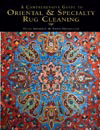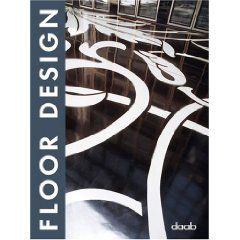Armstrong Linoleum line now NSF/ANSI 332 Gold Certified
Armstrong Commercial Flooring has been awarded NSF/ANSI 332 Gold Level certification for its Linoleum product line from NSF International.

Armstrong Commercial Flooring has been awarded NSF/ANSI 332 Gold Level certification for its Linoleum product line from NSF International, an independent, not-for-profit organization that provides standards development, product certification, auditing, education and risk management for public health and the environment.
Armstrong’s BioBased Tile (BBT), a biobased content, non-PVC product which provides environmental attributes with enhanced performance over composition tile, was previously awarded NSF/ANSI 332 Gold Level.
The NSF/ANSI 332 Sustainability Assessment Standard for Resilient Floor Coverings is a standard that was created to identify the environmental performance and sustainability attributes of products and to provide a method of tracking incremental changes to the products' sustainability profile. Using a point-based system, the NSF 332 standard measures five key areas: product design, manufacturing, long-term value, corporate governance and innovation. When audited against the NSF 332 standard, a product may achieve up to 100 possible points. Based on point values, products can be awarded Conformant, Silver, Gold and Platinum level certifications.
“Armstrong was involved in the development of NSF 332, believing green standards such as this can help provide a baseline performance level for ‘environmentally preferable’ products,’” said Dominic Rice, vice president, Sales & Marketing, Armstrong Commercial Flooring. “The standard provides a guide to look at not only the product, but the manufacturing process and company practices.”
These types of product standards provide a means for designers, architects, facility managers and purchasers to evaluate the sustainability of a range of products. These include vinyl composition tile, sheet vinyl flooring, vinyl tile, rubber sheet flooring, rubber tile, linoleum sheet flooring, linoleum tile, resilient wall base and resilient stair treads.
“We believe NSF/ANSI 332 helps to bring both clarity and transparency to the process. Being a national standard, certification offers customers the highest level of confidence. The ultimate goal of this standard is to establish a consistent, measurable and uniform approach to the evaluation of sustainable resilient floor coverings,” said Rice.
“The flooring industry and Armstrong have been at the forefront of environmental stewardship. We hope it will clarify resilient’s inherent environmental attributes, as well as encourage higher levels of sustainable manufacturing in the future. That being said, NSF 332 is just one piece of what Armstrong is doing to better understand and improve our environmental footprint by providing industries and organizations with a verified, scientific method of supporting environmental product claims,” Rice said.
Linoleum is the original, timeless resilient flooring made from natural, renewable raw materials. More than a century ago, Armstrong ceased discarding post-industrial cork waste and began recycling it – first into corkboard insulation, and soon afterwards into the green product on which its modern flooring business was built. Today, Armstrong linoleum is made of the same renewable raw ingredients as it was in the early 20th century, including wood powder, linseed oil, limestone, organic pigments and jute backing. The award-winning Marmorette line of commercial linoleum flooring with NATURCote – a high performance coating – represents this timeless standard of design with 67 tonal step options.
Rice stressed that the definition of ‘environmental’ differs from end user to end user. Among the range of products in Armstrong’s portfolio, some are low maintenance; many have long life cycles; some contain rapidly renewable ingredients; and all Armstrong resilient products are independently certified for low VOC emissions. The challenge lies in applying a consistent classification process across a diverse range of green attributes. As products with sustainability claims continue to enter the market, certification of these products to NSF 332 allows specifiers and purchasers to make informed decisions when selecting resilient flooring products.
Armstrong’s broad portfolio of Commercial Floor products lets customers choose from a wide variety of green, greener and greenest solutions. They include MIGRATIONS® and STRIATIONS™ BBT, linoleum, LVT, commercial hardwood, sheet, VCT and specialty flooring – all of which contribute to or comply with at least one LEED® requirement. All Armstrong® resilient products are FloorScore® Certified and independently tested and certified for compliance with California section 01350 for low VOC emissions and can comply with credit EQ4.3. In addition, all products can be installed using adhesives that comply with LEED credit EQ4.1 for low emitting adhesives.
For more information go to www.armstrong.com.
Looking for a reprint of this article?
From high-res PDFs to custom plaques, order your copy today!





